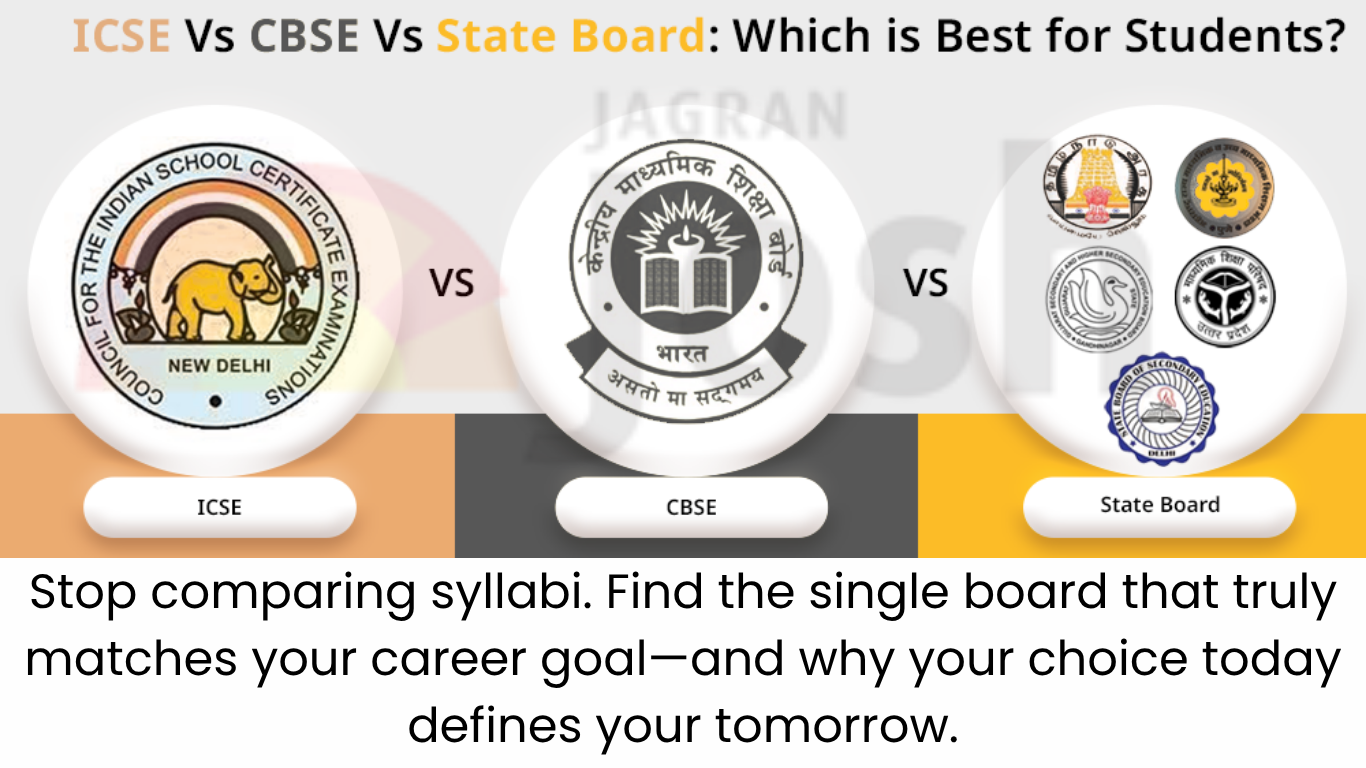Choosing the right educational board for your child is a big decision that shapes their entire school journey and even their future career. Different boards have different ways of teaching and different things they focus on. This means the board you pick can affect how your child learns, what they learn, and how well they prepare for important exams later on.
There isn't one board that is perfect for everyone. The best choice really depends on what your child wants to achieve, how they like to learn, and if your family moves around a lot. To help you make an informed decision, we'll look closely at the three main school boards in India: CBSE, ICSE, and the various State Boards.
1. Core Philosophy and Curriculum Focus
To truly understand the implications of each board, it's essential to delve into their foundational philosophies and how these translate into their respective curricula. The following table provides a clear overview:
Feature | CBSE (Central Board of Secondary Education) | ICSE (Indian Certificate of Secondary Education) | State Boards (e.g., UPMSP, MSBSHSE) |
| Governing Body | Central Government (NCERT Curriculum) | Private, Non-Governmental Board (CISCE) | Respective State Governments (e.g., Maharashtra, Gujarat) |
| Curriculum Focus | Science & Math Application. Curriculum is centrally designed, lighter, and standardized across the country. | Comprehensive and In-Depth. The syllabus is generally vast, detailed, and focuses on holistic learning. | Regional Focus. Syllabus varies widely and often includes mandatory regional language/local history subjects. |
| Primary Goal | Preparing students for national-level entrance exams (JEE, NEET, CUET). | Promoting holistic development and command over the English language. | Catering to local employment and government services; promoting regional culture. |
2. Examination Pattern and Evaluation
Each board approaches the assessment of student learning with distinct methodologies and focuses. Understanding these differences is crucial for students and parents to align with their academic goals. The table below details the examination patterns and evaluation criteria for CBSE, ICSE, and State Boards.
Feature | CBSE | ICSE | State Boards |
| Question Typology (New NEP) | High emphasis on Competency-Based Questions (50% weightage) to test application and critical thinking. | Focuses on analytical and expressive answers; questions require detailed, deep knowledge. | Primarily focuses on memory-based and direct questions (rote learning); competency questions are being introduced slowly. |
| Subject Options | Offers numerous Skill Subjects (e.g., AI, Data Science, Retail) for Classes 10 and 12. | Mandatory subjects are numerous, allowing less flexibility in choosing streams until Class 11. | Subject choices are often limited to pre-defined combinations relevant to the state. |
| Internal Assessment | Standardized, but typically carries 20 marks in theory-heavy subjects and 30 marks in Science subjects. | Schools are given greater authority over internal assessment and project work, often leading to higher overall scores. | Internal assessment policies and marks vary widely across different states. |
3. Student Profile and Future Suitability
This section helps you understand which board aligns best with different student profiles and future academic or career aspirations. The following table summarizes the suitability of CBSE, ICSE, and State Boards based on various student characteristics and goals.
Student Profile | CBSE | ICSE | State Boards |
| Mobile Families | Best Choice. The standardized NCERT curriculum ensures a smooth transition when moving between states or cities. | Difficult Choice. Syllabus differences can make transferring schools challenging mid-year. | Highly Difficult. The curriculum and language shift drastically between states. |
| Competitive Exams | Best Choice. The syllabus is closely aligned with the JEE/NEET/CUET curriculum, requiring minimal external preparation. | Good Choice. Excellent for English and detailed knowledge, but may require extra effort to cover specific competitive exam syllabi. | Challenging Choice. Requires significant external coaching to cover the national competitive exam syllabus. |
| Learning Style | Suits students who prefer structure, quick concepts, and application-based problem-solving. | Suits students who are strong in English expression and enjoy in-depth study of all subjects. | Suits students who are likely to pursue local colleges or state universities. |
Which Board Should You Choose?
The decision of which board to choose ultimately rests on the student's future goals:

-
Choose ICSE if: You prioritize deep, comprehensive knowledge, strong language skills, and are aiming for Arts/Humanities or a transfer to universities abroad.
-
Choose CBSE if: Your family moves frequently, or your primary goal is to crack competitive exams like JEE or NEET.
-
Choose State Board if: You plan to remain in your home state and pursue education primarily through the local university system.
Ultimately, the "best" board is a highly personal decision. By carefully considering your child's learning preferences, future academic and career aspirations, and family circumstances, you can make an informed choice that will lay a strong foundation for their educational journey.
Comments
All Comments (0)
Join the conversation